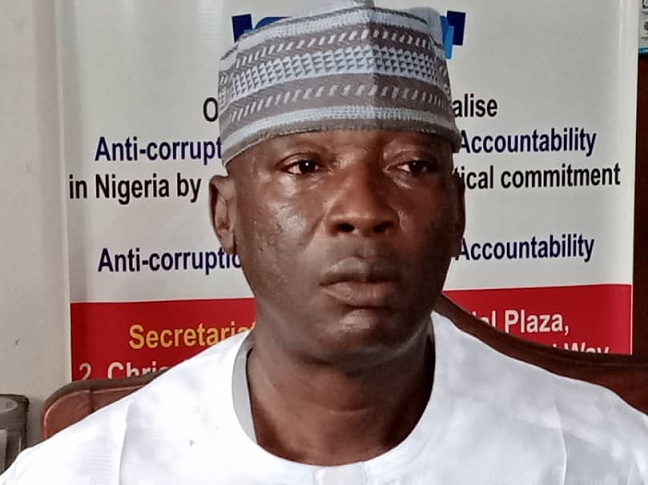In Nigeria, where millions are shackled by poverty and hunger, the very basics of life have become a luxury—mats for Muslim burials and coffins for Christian burials are no exception. As the nation battles crushing economic hardship, death becomes an added weight, pushing families into an even deeper abyss of financial despair. For the average Nigerian, the tragic reality is clear: death is no longer a natural part of life; it is a financial catastrophe.
This crisis extends beyond mere survival. It touches every aspect of life, from putting food on the table to managing the escalating costs of death itself. What was once a modest expenditure for most families—the cost of a mat or coffin—has spiraled into an insurmountable expense. The emotional pain of losing a loved one is compounded by the agonizing reality of having to scramble for money just to afford a dignified burial. And this raises a pressing question: why has Nigeria failed to introduce burial palliatives or insurance to relieve families from the financial devastation of death?
Increasingly, Nigerians are calling for burial insurance or palliative programs. These initiatives could provide families with essential financial support to cover funeral costs, ensuring that no one has to endure the added burden of borrowing or liquidating assets just to bury their dead. Such programs are not just a matter of convenience; they are a matter of dignity. In a nation where economic hardship has become the norm, securing a dignified burial should not be a privilege reserved for the wealthy. A burial palliative system would offer a lifeline to families, giving them the peace of mind to grieve without the unbearable weight of financial ruin.
As Pastor Chris Oyakhilome once said, “The way you care for the dead is an indication of how you value the living.” In Nigeria, where many struggle daily to make ends meet, the high cost of death is a stark reminder of how little value is placed on the most vulnerable citizens. If the government is truly committed to improving the well-being of its people, it must recognize that financial security in life should extend to death as well. This includes burial insurance as part of a broader social safety net. Despite the government’s efforts in poverty alleviation, such initiatives often miss the most marginalized. The introduction of burial insurance within this framework could provide a more holistic approach to addressing the profound struggles of everyday Nigerians.
South Africa offers a model that Nigeria should study. There, funeral insurance programs have become a vital part of social security, with premiums low enough to be accessible to individuals from all walks of life. As a result, families are spared the crushing burden of scrambling for funeral costs in times of grief. Nigeria, as Africa’s largest economy, cannot afford to ignore this growing problem. It is an economic necessity and a moral obligation for the country to implement burial palliative or insurance programs that will protect citizens from the financial wreckage that follows death.
The burden of death in Nigeria has become so severe that many families must choose between burying their loved ones with dignity and providing basic sustenance for their children. This is an intolerable situation for any nation, let alone one as resource-rich as Nigeria. “A nation that cannot protect the dignity of its citizens in death is one that has lost its moral compass,” said renowned Nigerian theologian Dr. Paul Enenche. For too long, Nigerians have borne the crushing weight of death without the support of a system designed to ease their suffering. Introducing burial insurance or palliative programs would be a monumental step toward restoring dignity and compassion to the grieving process.
The introduction of burial insurance would allow Nigerians to grieve without the additional weight of financial hardship. Death is an inevitable part of life, but it should not be a cause for further suffering. The financial burden that funerals currently place on families only deepens the pain, preventing them from finding solace in their mourning.
In a nation where millions already endure the daily struggle for survival, the introduction of burial insurance or palliative programs would not be a mere luxury—it would be a declaration of the government’s commitment to the well-being of all its citizens. While addressing poverty and hunger remains essential, the time has come for the government to address the financial toll that death takes on families, ensuring that no Nigerian is left destitute in the face of loss.
The introduction of burial palliative or insurance is not just an economic necessity; it is a moral imperative. It is time for the Nigerian government to take decisive action and ensure that no Nigerian has to face the death of a loved one while simultaneously battling the overwhelming financial burden of burial costs. In the words of Bishop David Oyedepo, “The measure of a nation’s greatness is not found in its wealth, but in how it cares for its most vulnerable.” Nigeria’s prosperity should be measured not only by its economic output but by how it supports its people in life—and in death.
– Inah Boniface Ocholi writes from Ayah – Igalamela/Odolu LGA, Kogi state.
08152094428 (SMS Only)




